The Longrun Story
A Brief history of Longrun
Linux Users Group
Welcome to the LongRun.org site. My name is Kent Tenney, and this is a brief summary of the LongRun computer recycling project in Ashland WI, USA.
It all started with the formation of the Linux Users Group.
After some discussions with Mike Gardner, director of the Inland Sea Society, I scheduled a meeting to be held at the ISS office, June 11 2002.
The meeting attracted 6 interested parties. There was a demonstration of installing a Zope site, and discussion of what direction the group was interested in taking.
The first meeting with minutes was August 14, at which time we had already turned our focus to computer recycling. As a result of many, including Mike Gardner, Bruce Lindgren and Jon Baier, a partnership was forged with the Ashland Area Enterprise Center to implement a computer recycling project.
A reporter from Ashland's Daily Press attended a planning meeting, resulting in a very nice article, front page, color photo, above the fold.
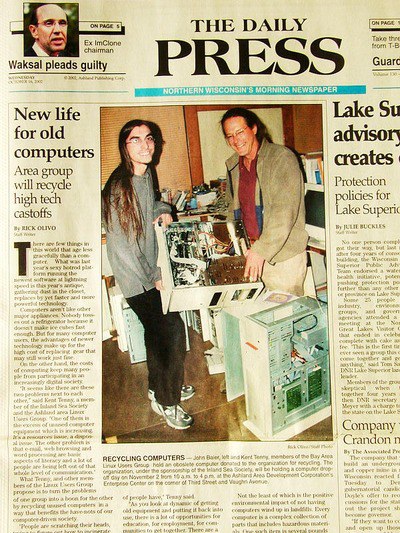
Drop off day
We scheduled the initial collection day for Nov. 2, announced it with flyers
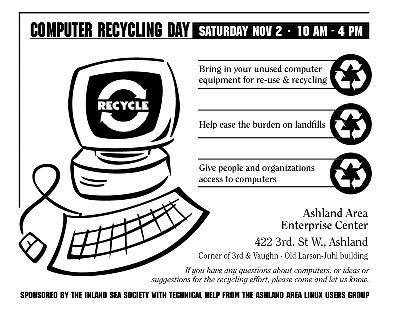
and the Mayor of Ashland, Fred Schnook, declared Nov. 2 Computer Recycling Day in Ashland
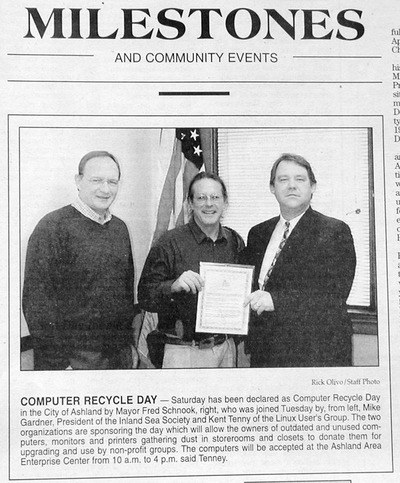
The drop-off day was a great success
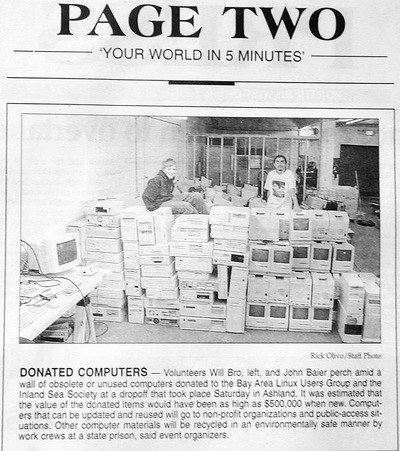
The Longrun project met a need for responsible disposal of unwanted computer equipment. We took in many tons of computers, printers and accessories, from individuals, businesses and schools.
The WITC / Ashland High initiative
During the spring semester of 2003, a WITC Electronics student, Andy Pope, elected to work with Longrun for the work/study component of his coursework. The result was a series of workshops held at the WITC campus, and the AAEC.
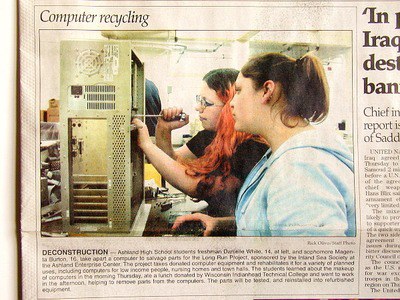
These workshops offered high school students the opportunity to learn about computers in a hands-on setting.
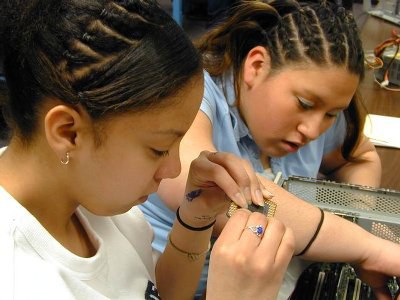
Some elders from the community took advantage of the opportunity.
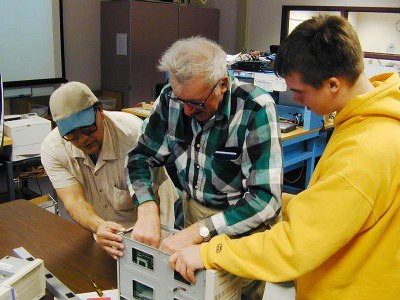
There was interest from a number of segments of the community, and the evening sessions in the warehouse were well attended.
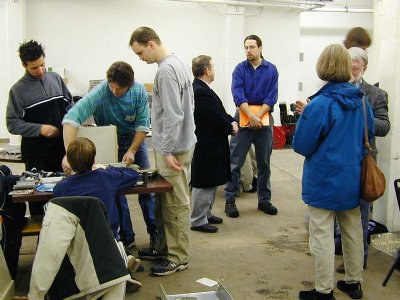
That's Andy Pope, the WITC student teaching the workshops, and Anni Schneider with the camera, our champion at Ashland HS. This photo is from an evening session, a grade school student is taking advantage of the opportunity to get hands-on experience with the computers.
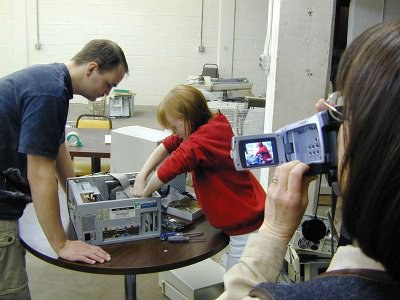
It was evident to all those involved that our vision:
LongRun.org is committed to supporting environmental stewardship, educational opportunities and community enrichment through leveraging discarded electronics to address the digital divide.
and the principles in a white paper were viable and accessible.
Searching for funding
All we needed was the funding to transition from volunteer-driven to self-sustaining.
We put a lot of effort into a substantial EPA grant entitled Demonstrating a New Computer Stewardship Model for Rural Communities. unfortunately, the grant application was rejected.
We held a series of meetings to evaluate the feasibility of an application for a Learn and Serve America grant. It seemed evident that service learning efforts were getting priority in terms of federal support for education initiatives.
The meetings were held at the WITC campus in Ashland and featured participation by representatives of a diverse cross section of parties in the area.
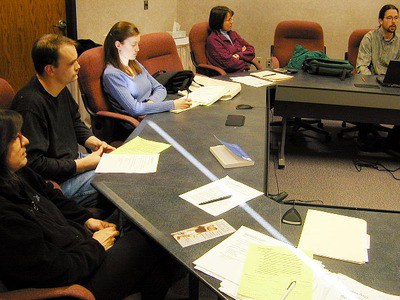
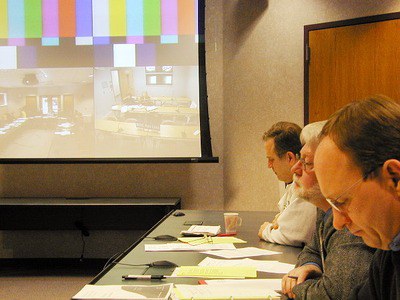
Represented were
- Northland College
- WITC Ashland and Shell Lake campus
- Red Cliff Reservation
- Ashland High School
- USDA Rural Development
- Inland Sea Society
- community volunteers
Upon careful consideration, it was determined that the deadline did not allow enough time to prepare a successful application.
In addition to the list of participants we collected a substantial collection of letters of support
our one success in funding initiatives was an XCel Energy Foundation Focus Area Grant for education.
The Inland Sea Society kept the project going by providing a part-time paid position for a few hours a week. sadly, income from equipment drop-off did not cover wages and rent, bringing the project to an end in August of 2006.
